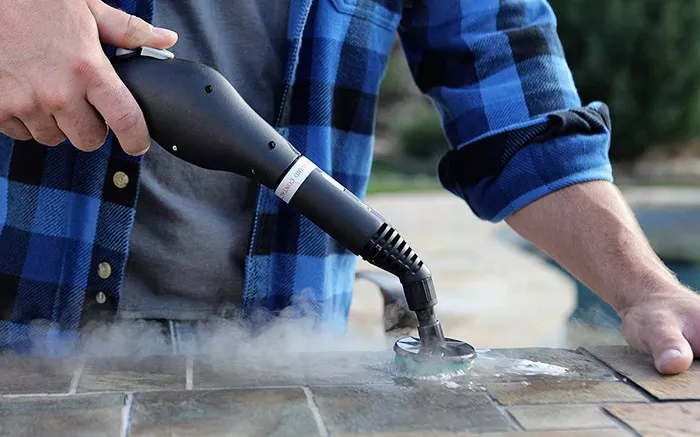Steam mops are popular household cleaning tools known for their effectiveness in sanitizing floors and removing dirt without the need for harsh chemicals. They work by using steam to break down and lift dirt from surfaces, which is then wiped away by the mop’s microfiber pad. A common question among users is whether tap water is suitable for use in steam mops. This article will explore the feasibility of using tap water in steam mops, the implications of doing so, and what you need to consider to maintain your steam mop’s performance and longevity.
Understanding Steam Mops
How Steam Mops Work
Steam mops operate by heating water to produce steam. This steam is then directed onto the floor through a mop head, which usually has a microfiber cloth attached. The steam loosens dirt, grime, and bacteria from the surface, while the microfiber cloth absorbs the debris. This process allows for a thorough clean with minimal physical effort and without the use of chemical cleaners.
Water Requirements
The type of water used in a steam mop can impact its performance and durability. Manufacturers often recommend using distilled or demineralized water, which is free from impurities and minerals. However, many people wonder if it is possible to use regular tap water instead, and what effects it might have on the appliance.
Using Tap Water in Steam Mops
Mineral Content in Tap Water
Tap water typically contains various minerals such as calcium, magnesium, and iron. These minerals can lead to mineral deposits or scale buildup within the steam mop over time. Scale buildup can affect the performance of the steam mop by clogging the internal components, reducing the efficiency of steam production, and potentially causing damage to the appliance.
Impact on the Steam Mop
Using tap water in a steam mop might seem convenient, but it can have several consequences:
Reduced Efficiency: Mineral deposits from tap water can accumulate in the steam mop’s heating element. This buildup can insulate the heating element, making it less efficient at producing steam and potentially leading to longer cleaning times.
Shortened Lifespan: Over time, scale buildup can cause internal components to wear out more quickly. This can lead to a reduced lifespan of the steam mop, necessitating more frequent repairs or replacements.
Maintenance Requirements: If you use tap water, you might need to perform more frequent maintenance to keep your steam mop in good working order. This could involve descaling the appliance regularly to remove mineral deposits and ensure optimal performance.
Manufacturer Recommendations
It is always best to follow the manufacturer’s recommendations regarding the type of water to use in your steam mop. Many manufacturers explicitly advise using distilled or demineralized water to avoid issues related to mineral buildup. Checking the user manual for specific guidelines can help you make an informed decision and ensure you are using the product as intended.
Alternatives to Tap Water
Distilled Water
Distilled water is purified through a process of boiling and condensation, removing impurities and minerals. It is an ideal choice for steam mops because it prevents mineral buildup and maintains the efficiency of the heating element. Using distilled water can help extend the lifespan of your steam mop and reduce the need for frequent maintenance.
Demineralized Water
Demineralized water, also known as deionized water, has had its mineral ions removed through filtration processes. Like distilled water, demineralized water helps prevent scale buildup and ensures the efficient operation of your steam mop. It is another suitable option if you want to avoid potential issues associated with using tap water.
Benefits of Using the Right Water
Optimal Performance
Using distilled or demineralized water ensures that your steam mop operates at its best. The absence of minerals helps the heating element work efficiently, producing a consistent and effective steam output.
Longevity of the Appliance
Proper water choice can significantly extend the lifespan of your steam mop. By avoiding mineral buildup, you reduce the risk of damage to internal components, leading to fewer repairs and a longer service life.
Reduced Maintenance
With distilled or demineralized water, you can minimize the frequency of maintenance tasks, such as descaling. This not only saves time but also ensures that your steam mop remains in good condition with minimal effort.
see also: How Often Should You Steam Clean Your Carpet with Pets?
How to Maintain Your Steam Mop
Regular Cleaning
To keep your steam mop functioning properly, it is important to perform regular cleaning. After each use, empty the water tank and wipe down the mop to remove any residual moisture or debris. This helps prevent the growth of mold and bacteria and keeps the appliance in good working order.
Descaling
If you have been using tap water, you may need to descale your steam mop periodically. Descaling solutions are available and are designed to dissolve mineral deposits that may have accumulated in the heating element. Follow the manufacturer’s instructions for the correct descaling procedure.
Check for Clogs
Inspect the mop head and steam vents regularly for any signs of clogging or blockage. Cleaning these areas as needed ensures that steam can flow freely and that your steam mop continues to perform effectively.
Conclusion
In summary, while it is technically possible to use tap water in a steam mop, it is not the best choice due to the potential for mineral buildup and the resulting impact on the appliance’s performance and longevity. Distilled or demineralized water is recommended to ensure optimal operation and to extend the life of your steam mop. By following the manufacturer’s guidelines and maintaining your steam mop properly, you can enjoy effective and efficient cleaning while keeping your appliance in top condition.

